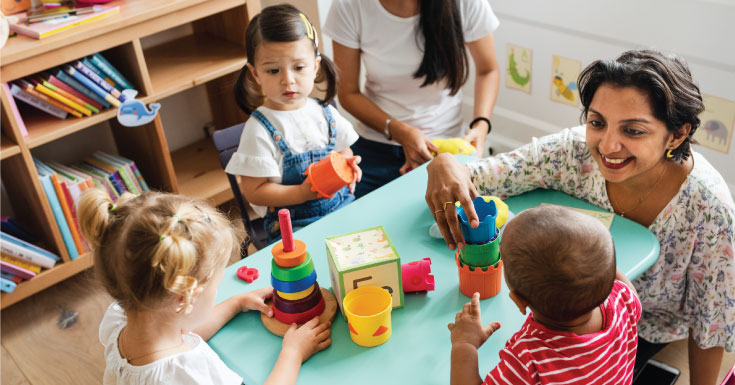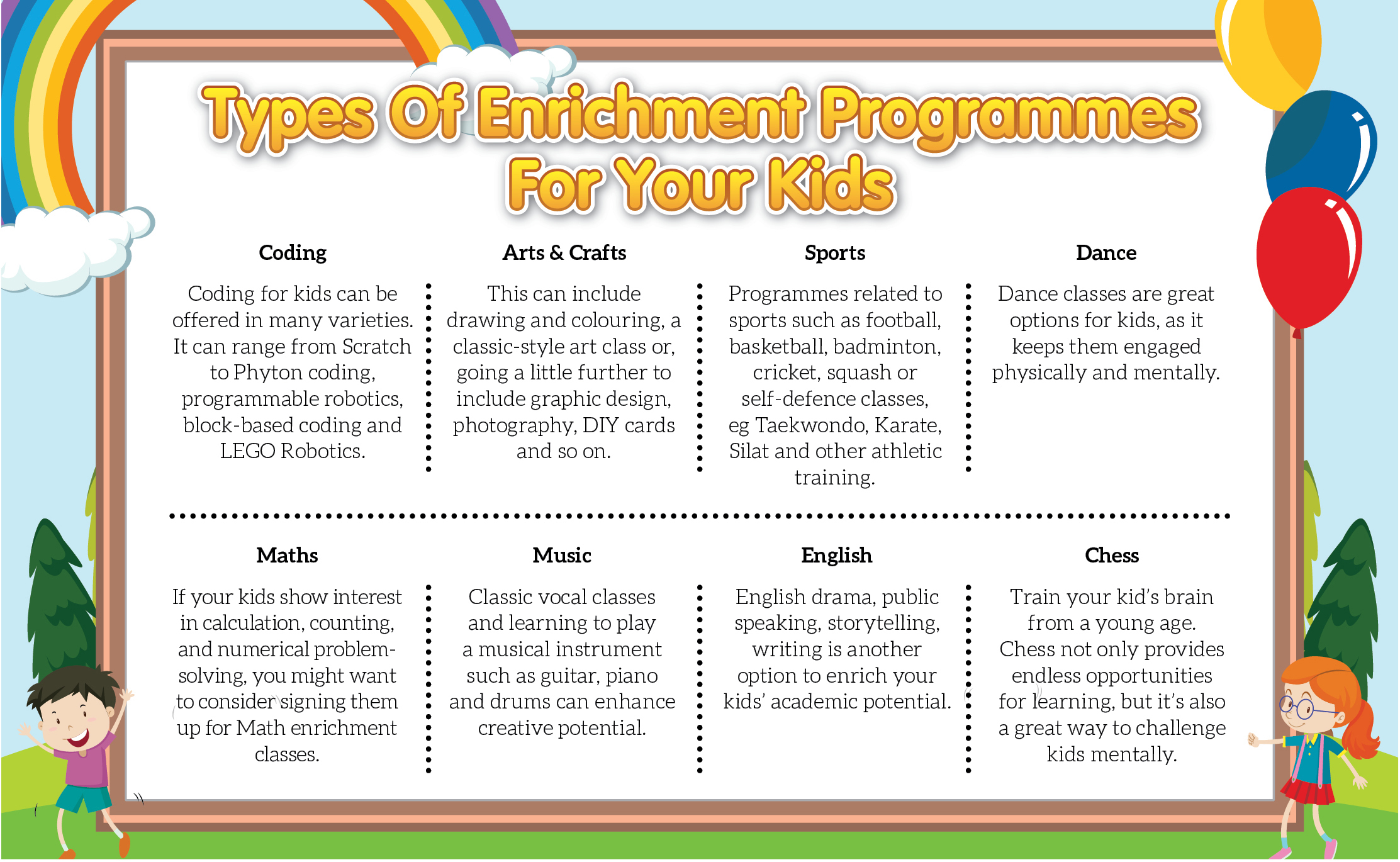What You Should Look Out For
Pre-school enrichment programmes are usually aimed at children between the ages of 3 and 9. Enrichment programmes are helpful as they impart important social skills, improve cognitive development and get your child ready for school. But, with so many such programmes available, how do you pick the most suitable one for your child’s individual learning style and personality?
You will have to decide if you want your child to go to a discovery-focused enrichment programme or an academic-based one. There are many factors to consider but ultimately the choice should ideally depend on the nature of the child and which programme would enhance your little one’s natural urge to learn and explore the world around him/her.
Children get the opportunity to develop talents in areas that are not covered in a normal school curriculum. They are also allowed to explore their interests and automatically unlock their innate potential. With a vast selection of enrichment centres available in the country, picking the best option for your little one can be tricky, so here are five tips to help you narrow it all down.
Consider your child’s learning needs and goals
Emphasise Personalised Learning
Observe your child. Talk to him/her. While interacting with your child, make mental notes. What makes them excited? Is it the outside world of nature? Is he/she more comfortable with music, rhyme and rhythm? What about dance and drama? Does your little one prefer to know about the stars and why the sky is blue? Or do they prefer to simply take things apart and spend hours trying to put them back together?
List down your observations in the order of excitement shown. Now with this list in hand, you can start shortlisting suitable enrichment centres.
How best does my child learn?
Observe your child at play and learning
How will you be able to identify this? Again, watch and observe your child at play and learning unconsciously. Is your child an auditory learner – is he/she able to listen and take instructions? Do they constantly barrage you with questions until they’re satisfied?
Does your child learn best when he sees pictures? Most children are visual learners as they enjoy visual stimulation.
Is your child a kinesthetic learner? (A kinesthetic or tactile learner learns fast in a physical environment where they are personally involved in doing an activity rather than watching it being done.)
In most cases, children show a combination of one or two learning styles.
Check if the enrichment centre you are considering has the current technology and uses the learning methodology that suits your child.
Consider the potential skills and knowledge to gain
What extra skills will my child gain?
Teaching and learning methodologies have evolved tremendously over the last decade and therefore you need to check if the programme provides the relevant soft skills, physical activities, IT skills (such as coding), and cultural awareness that is needed for your child to be a confident and independent learner.
Talk to the programme facilitators and be clear that their goals fit with your child’s learning goals as well.
Cost and location
Consider the extra commuting time
While enrichment programmes help to enhance the child’s latent talents, parents need to factor in the extra cost and find a programme that suits their budget. Moreover, the location of the learning centre would be a major consideration as it may mean extra commuting time for the parent.
If for some reason you are not ready to enroll your child for an enrichment programme, you could opt for the simpler version. You could just sign up your child for trial workshops in the centre – this way, you can actually find out if your child displays any talent or interest before signing up.
Consider your child’s daily routine
Know your child’s schedule
Essentially, the child comes first. Do not overburden the child. Most children already have school work and co-curriculum activities. Ensure a happy balance between school and family activities. If your child has the time, then give him/her the long-term benefits of joining an enrichment programme.
New research at Carnegie Mellon University (CMU) presents the first direct evidence that experiential programmes increase a child’s ability to lock away new information as well as generalize the knowledge to new situations. These findings suggest that enrichment programmes folded into a normal academic curriculum could strengthen knowledge acquisition and increase academic success.
“It is well documented that economic privilege is linked to better academic outcomes,’’ said Catarina Vales, a postdoctoral researcher in CMU’s Psychology Department and the first author of that study.
“Our research suggests that one possible reason may be access to enrichment opportunities where children acquire knowledge that will later become important at school,” she added.
Enrichment programmes help enhance a child’s potential and instil an eagerness to learn about the world around them through various learning methods. This love for learning is the foundation for school readiness and the ability to utilise the Listening, Speaking, Reading and Writing skills not only in school life but will support their ability to absorb, retain and recall any information throughout their lives.



